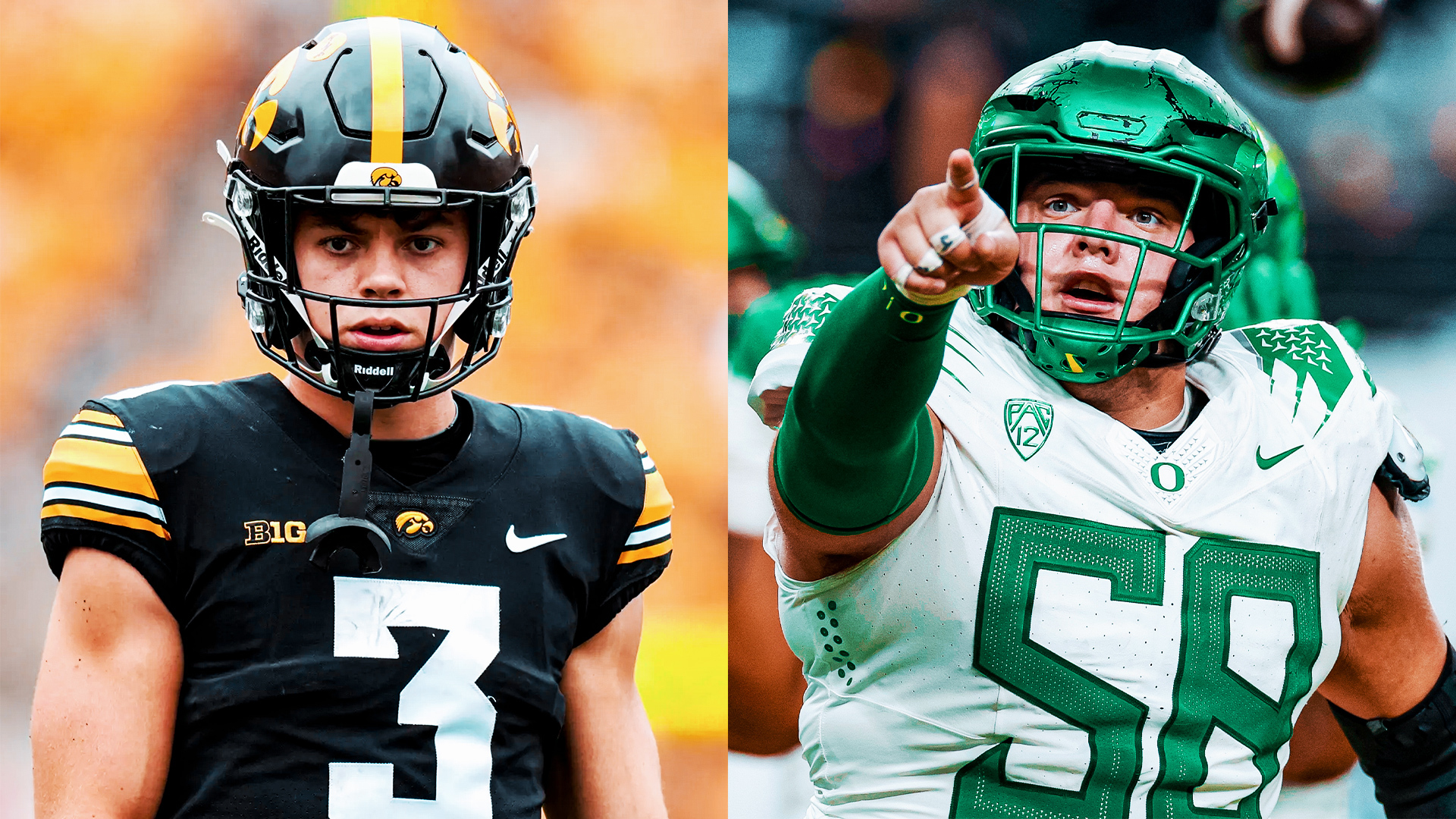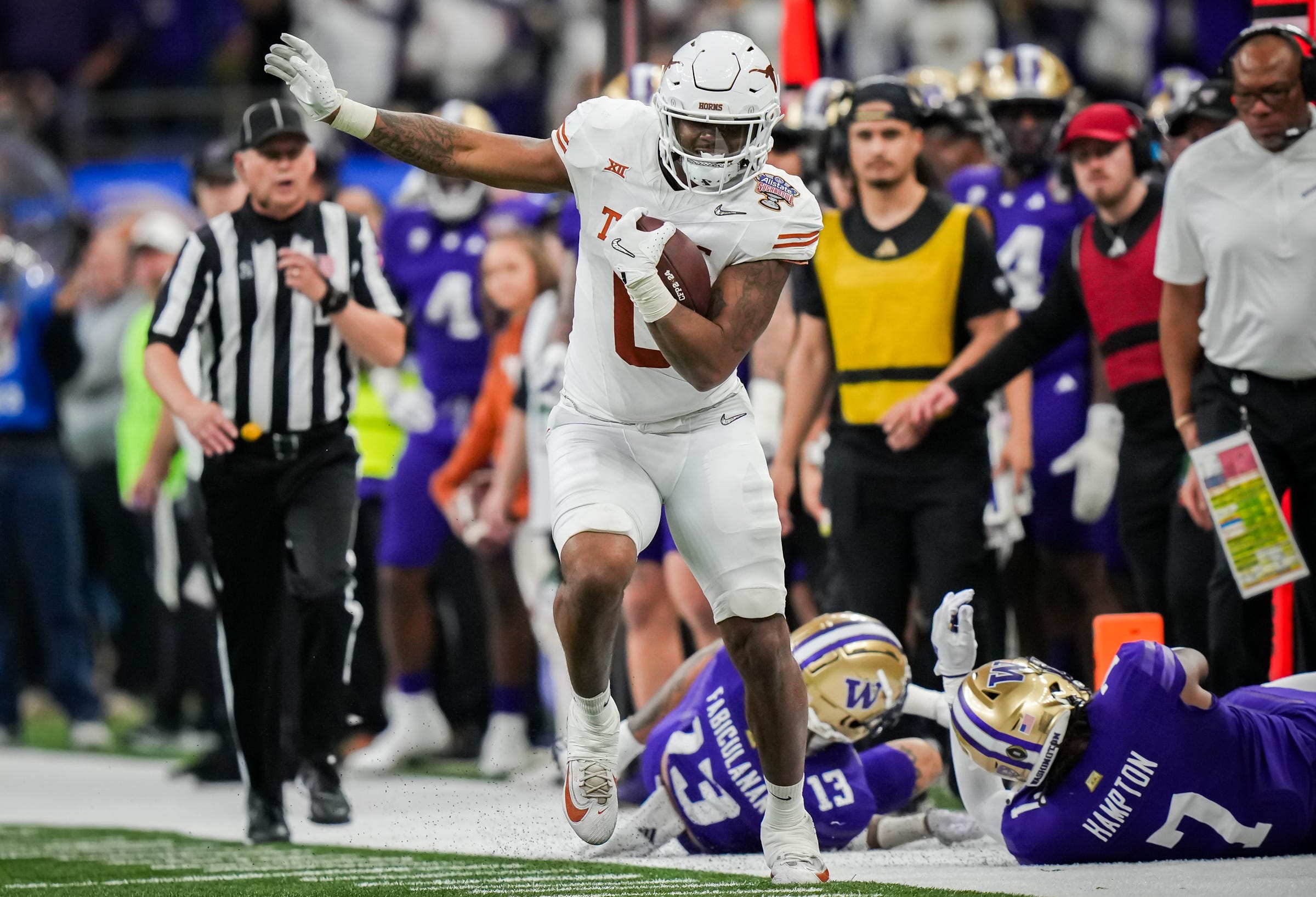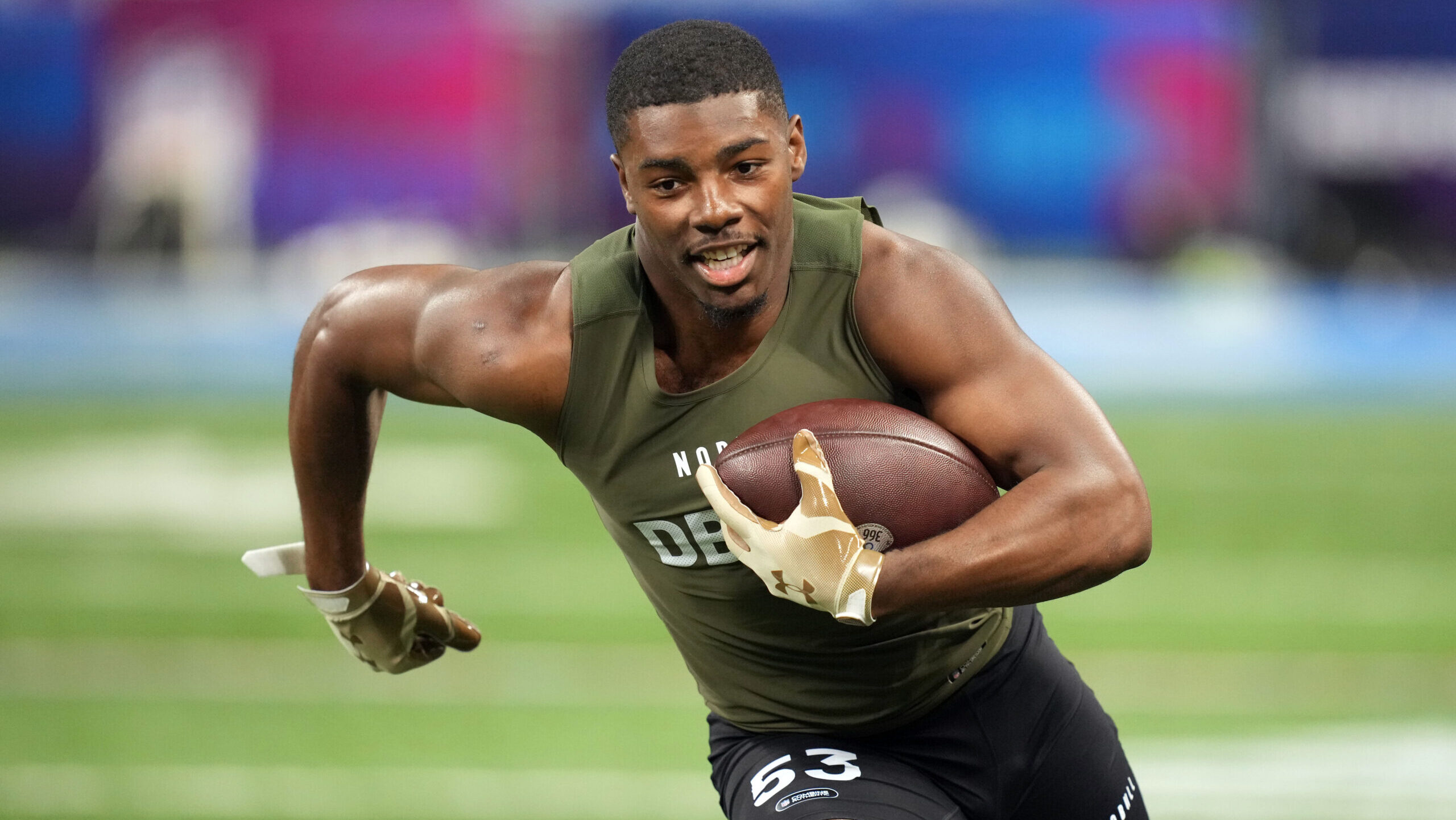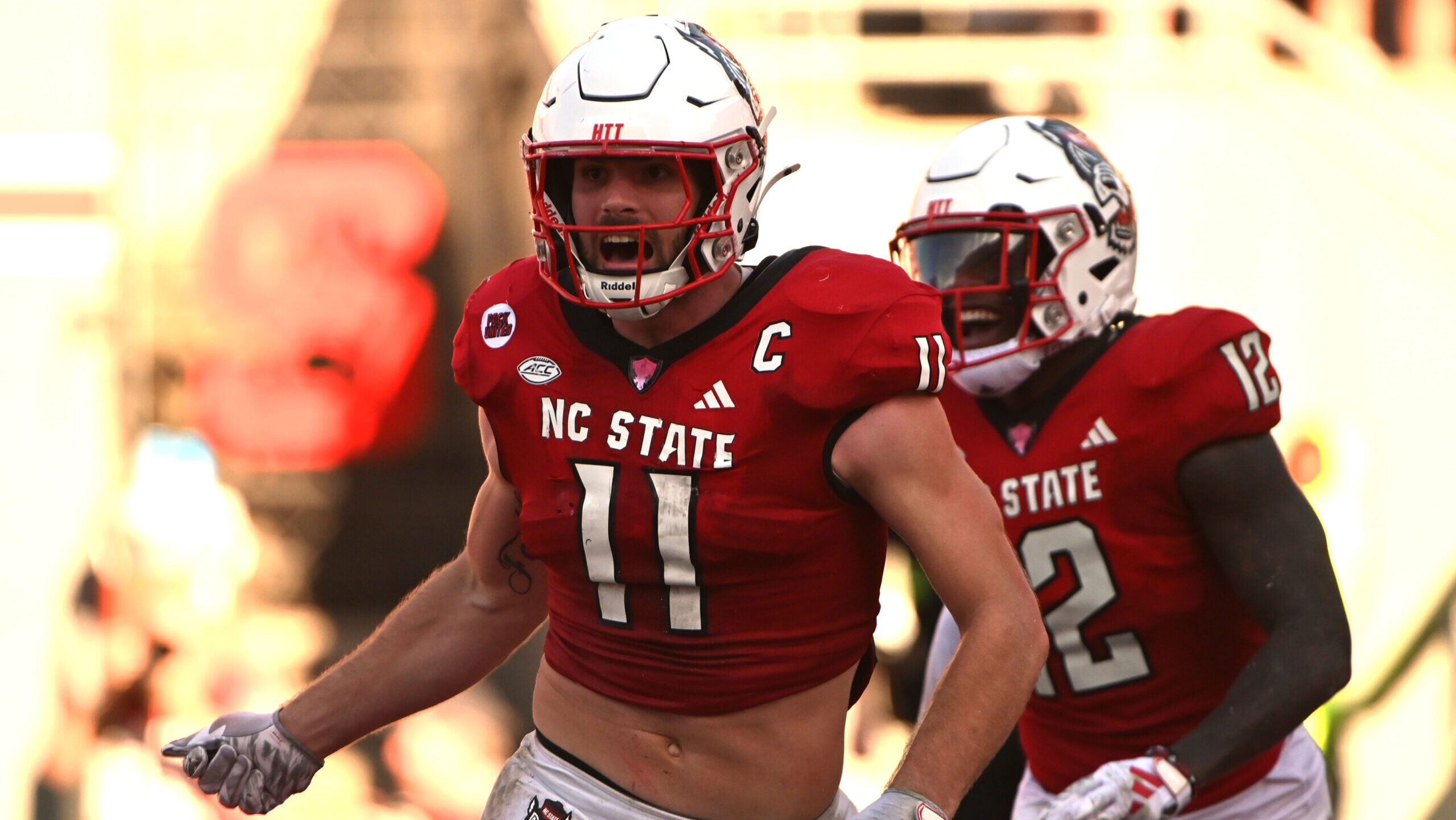NFL Analysis
3/14/24
8 min read
NFL's Biggest Winners, Losers of First Wave of Free Agency
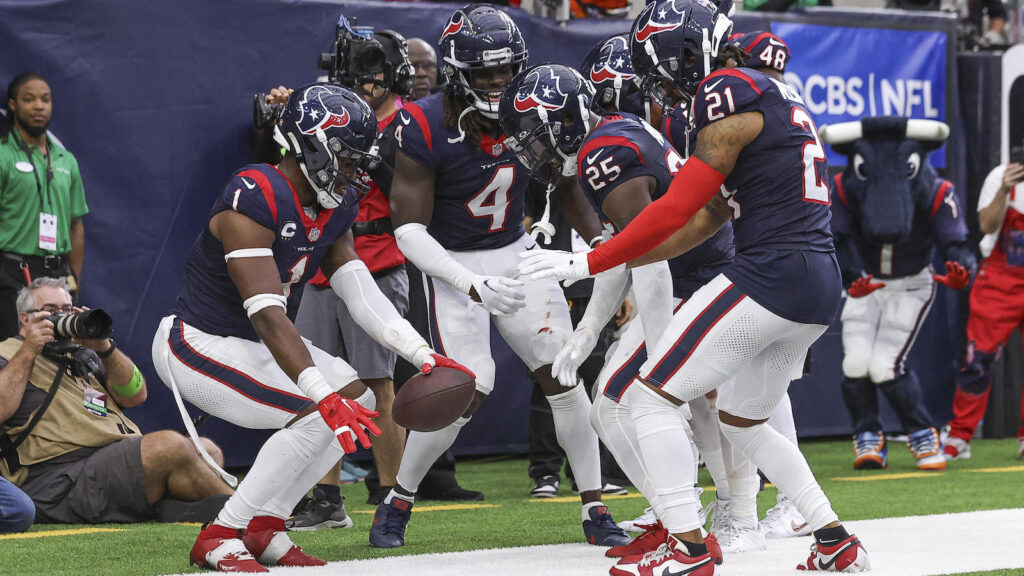
The first wave of the 2024 NFL free agency period was a doozy. Three players landed nine-figure deals, some of the league's best running backs joined rivals, and up-and-comers aggressively spent on upgrades. Along the way, it's clear who the NFL's biggest winners and losers are thus far.
Of course, the first few days of free agency can be fool's gold. In two years, most of these deals will see the guaranteed money expire, and the market will be again flooded with some of the same names. The cycle of chasing top free agents can be most fulfilling at the moment or prove to reshape a team's short-term future if a signing hits.
So, who has won or lost the first wave of free agency?
Biggest Winners, Losers Early in 2024 Free Agency
Winner: Houston Texans
A thrilling 2023 season quickly helped Houston Texans fans forget about the team's 10 wins in the previous three seasons. A franchise quarterback in C.J. Stroud, an excellent coach in DeMeco Ryans, and a ton of cap allowed the Texans to overhaul their woeful defensive personnel. Houston started slowly, watching edge rusher Jonathan Greenard bolt to Minnesota, but quickly recovered with several deals.
Houston, needing help in the running game after Dameon Pierce turned into a plodder in 2023 and Devin Singletary signed with the Giants, wisely snatched up Joe Mixon from the Cincinnati Bengals for a seventh-round pick. Mixon, one of the most effective receiving backs in the NFL, will benefit from Houston's play-action-heavy scheme and excellent tackles.
After shoring up their most glaring offensive need, Houston replaced Greenard with someone slightly better equipped to contribute right away without giving a long-term commitment. Acquiring Danielle Hunter on a two-year, $49 million deal is a premium in the short term, but that's the flexibility Houston can afford with Stroud on an affordable rookie deal. Hunter ranked fifth with 16.5 sacks last year and added four forced fumbles.
The best under-the-radar move of the first wave of free agency might've been nabbing Denico Autry. Able to play on the edge or as a tackle, Autry has been fantastic over the last seven years. He quietly produced 11.5 sacks for Tennessee, proving to age gracefully.
Houston's playmaking on both sides of the ball has markedly improved already.
>>READ: Grading Free Agent Moves
Loser: Veteran Wide Receiver Market
A free agency class will surely suffer when the ensuing draft class is strong. The 2024 rookie wide receiver group might be as good as it's been in a decade, and teams are spending like that's the case. As of the official start of free agency on Wednesday afternoon, Calvin Ridley's four-year, $92 million deal from Tennessee is the only huge contract.
Darnell Mooney and Gabe Davis got short-term deals with easy ways for their new teams to escape after Year 1. Jerry Jeudy was moved for late-round picks. The Chargers released Mike Williams as teams were reluctant to trade anything for his massive salary.
Marquise Brown is still fighting to maximize his offers, and we might wait a while for Michael Thomas, Odell Beckham and Tyler Boyd to find a home. As a WR2 in a healthy offense, Brown's speed is the biggest selling point for suitors. But a short class to begin with has seen an uninspiring amount of action thus far.
Winner: Atlanta Falcons and Kirk Cousins
We wrote about how well Kirk Cousins fits into Zac Robinson's Atlanta Falcons offense, and the upside justifies the cost the Falcons ponied up. Sure, $100 million guaranteed is a lot for a near-36-year-old coming off a torn Achilles, but that's the cost of landing an average or slightly better quarterback. Cousins might turn in his best play yet in a loaded Falcons offense that should make his life much easier.
The signing also takes Atlanta out of the running for a quarterback in the 2024 class. Picking eighth, Atlanta would've either been stuck settling for the fourth or fifth passer off the board or needing to trade up. With a defense desperately needing more help at corner and on the edge, Atlanta can use those assets to give Raheem Morris a competent unit to mold.
Loser: Justin Fields
The trade market for Justin Fields disappeared almost overnight. The Falcons were always the best natural landing spot for Fields in terms of team need, an offense with a ton of young talent and being near his hometown. However, Fields' other potential landing spots weren't thrilled about the possible pairing.
The Steelers quickly signed Russell Wilson after the Broncos released him. As soon as Cousins committed to his new team, Las Vegas and Minnesota opted for Gardner Minshew and Sam Darnold, respectively. Denver is the only team in the league without a clear starter and the pathway to drafting one in the top 10 right now.
It's still possible a team like Seattle will swoop in for Fields at a reduced cost and provide an excellent situation for him to develop. However, the less a team has to give up for Fields, the less committed they're likely to be in the long term. It's clear no one is willing to dive headfirst into marrying Fields, and that puts his future as a starter on hold.
Winners: Rushers and Blockers
The running back market is depressed enough that even Philadelphia couldn't resist splurging on Saquon Barkley. Barkley, Derrick Henry, Tony Pollard, Josh Jacobs and D'Andre Swift each received deals worth at least $8 million annually. Austin Ekeler, Zack Moss and Singletary also found solid paydays.
It's considered a weak running back draft class, and teams acted on that in free agency. Houston could've waited out Mixon's release but instead inherited his $6.1 million cap hit in 2024. Moss and Singletary were rotational starters in 2023 but will score at least $4 million each next year.
So much for the position being completely devalued.
The even bigger winner is the interior offensive linemen market. It is a major development to see Robert Hunt and Damien Lewis ($100 million and $53 million, respectively, from Carolina) and Jonah Jackson and Kevin Dotson ($51 million and $48 million, respectively, from the Rams) all get the bag.
Guards are no longer an afterthought for teams. Center Lloyd Cushenberry also received $50 million from Tennessee.
Expect to see more guards selected in the first round of upcoming drafts as the days of finding value free agents at the position are gone.
>> READ: Hot RB Market Won't Last Long
Loser: Pittsburgh Steelers
Instead of chasing Cousins or going with a young, dynamic quarterback in Fields, the Pittsburgh Steelers chose to hedge by signing Wilson to compete with Kenny Pickett. Wilson was so bad in Denver that Sean Payton reduced his role to throwing behind the line of scrimmage on almost 30 percent of attempts, cut down on the verbiage to simplify the offense and made him as much of a game manager as possible.
If anything, Seattle's long unwillingness to #LetRussCook was justified after Payton couldn't create an average offense with Wilson.
Now, we'll see a Steelers offense in 2024 with Wilson or Pickett under center and without Diontae Johnson in the slot. Johnson was traded to Carolina for CB Donte Jackson. Although Johnson had his flaws, he consistently found green space and was productive in his role.
The Steelers also committed $41 million over three years to linebacker Patrick Queen. This isn't an atrocious deal, but Queen's impact is less impressive than his raw numbers might suggest. He clearly benefited from playing next to Roquan Smith and behind Justin Madubuike.
Queen's pass coverage numbers are especially concerning for a defense that already struggles with speed in its back seven. He's allowed a completion rate of at least 75.9 percent, more than 232 yards after the catch and more than 7.5 yards per completion in each of his four seasons. Plus, he's totaled only 45 pressures, 17 QB hits and 13.5 sacks on 259 blitzes in his career.
He's more of a box player who thrives downhill. That's fine, but it doesn't help what Pittsburgh needed the most or what fits the modern NFL.
>>READ: Top 100 Free Agents
WInner: Bryce Young
It’s debatable whether the Carolina Panthers' spending as much as they did on Hunt and Lewis was wise, but they’re replicating what their divisional rival did for more than a decade. When New Orleans had Drew Brees, the team prioritized paying interior linemen.
While Bryce Young is still looking to prove he’s a franchise quarterback, giving him a stout group of blockers will invigorate what was an embarrassing offense last year.
Along with Hunt and Lewis, Carolina wisely nabbed Johnson for basically nothing. The team was set to cut Jackson, so acquiring Johnson via trade allowed them to eliminate the competition. He’ll give Young another viable and reliable option next to Adam Thielen.
How Carolina uses the second-round pick it acquired in the Brian Burns trade could also help Young. Adding a center like Jackson Powers-Johnson or Zach Frazier would completely overhaul the positional group.
>> READ: 2024 NFL Draft Big Board
Loser: Dallas Cowboys
So much for being “all-in” on this roster, Jerry. The Dallas Cowboys didn’t have a ton of money to work with, but extensions for Dak Prescott and CeeDee Lamb would’ve helped. Instead, Dallas watched Tyron Smith and Tony Pollard hit the open market and failed to land Moss.
Dorance Armstrong and his 21 sacks in the last three years also left. The Wednesday evening signing of 32-year-old Eric Kendricks will only help so much. Now a worse team in terms of talent and without defensive coordinator Dan Quinn, the Cowboys are even further down the NFC pecking order.


